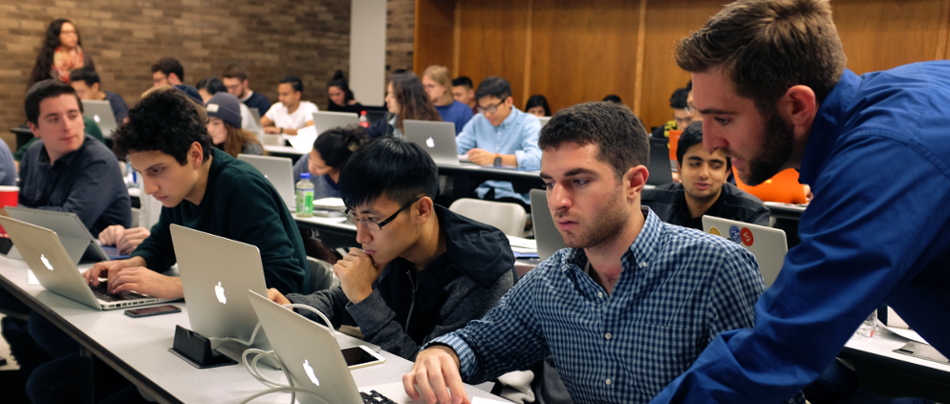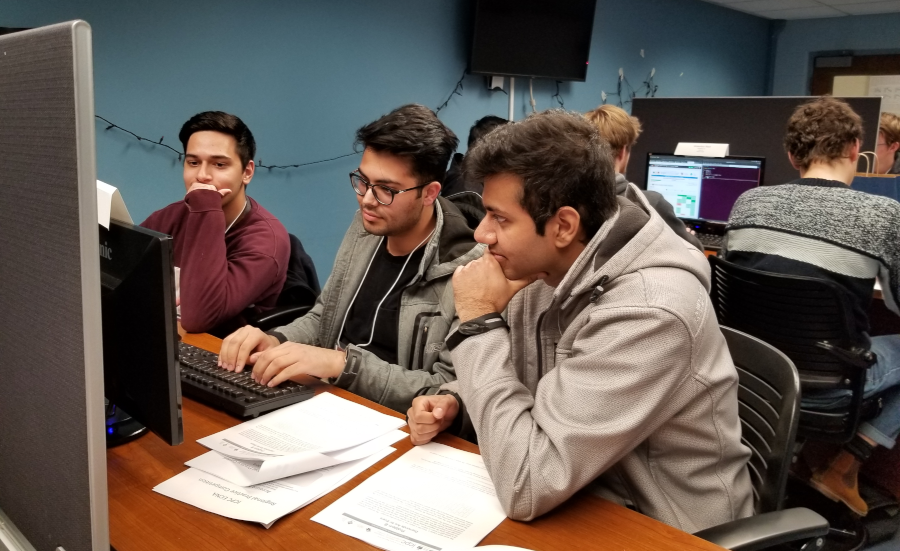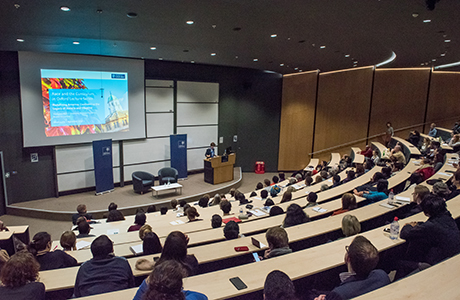Are you considering pursuing a computing degree but unsure about the entry requirements? Don’t worry, I’ve got you covered!
To pursue a computing degree, you typically need A-levels with top grades in Mathematics and at least one Science subject (such as Computer Science, Further Mathematics, Biology, Chemistry, or Physics). Practical skills are crucial, and passing the practical component of any science A-level is necessary. Contextual offers may be available for slightly lower grades.
Additionally, a solid foundation in math, technical skills, and a portfolio of projects enhance your chances
In this article, we’ll demystify what it takes to pursue a computing degree. From A-levels to practical skills, we’ll guide you through the essentials.
What are the computing degree entry requirements?

To pursue a computing degree, you typically need to meet certain criteria
A-level Requirements
AAA with an A in Mathematics**: This means achieving top grades in your A-levels. Mathematics is crucial for computing, so having an A* in it is essential.
Science Subject: You should have at least one science subject (such as Computer Science, Further Mathematics, Biology, Chemistry, or Physics) at A-level. Practical skills are also important, so passing the practical component of any science A-level is necessary.
Contextual Offer
If you qualify for a contextual offer, you may need slightly lower grades (AAA) but still with an A in Mathematics and a science subject.
Duration of A-level Study
If you completed your A-levels early or followed an accelerated curriculum, your application will be considered based on the standard selection process.
If your A-level examinations were spread over three years, the admissions tutor will decide whether to make an offer.
GCSE Requirements
You must demonstrate a broad general education
- Mathematics: Achieve a minimum Grade B/6 in GCSE Mathematics (Applied GCSE Mathematics courses are not accepted).
- Science Subjects: Two science subjects from Computer Science, Physics, Chemistry, Biology, or Science and Additional Science.
- English Language: Obtain a minimum Grade B/6 in GCSE English Language (English Literature won’t suffice).
High School Education Requirements

Let’s have a look into the High School Education Requirements for aspiring computer science students.
Core Subjects
High school students aiming for a computer science degree should focus on the following core subjects
Mathematics: Strengthen your math skills. Courses like algebra, geometry, and pre-calculus lay the groundwork for more advanced concepts you’ll encounter in college.
Science: Science courses, especially physics and chemistry, enhance your analytical thinking. Understanding scientific principles will serve you well in computer science.
English: Communication matters! Writing essays, understanding literature, and expressing ideas clearly are essential skills for any field, including computer science.
Math and Science Courses
Calculus: This mathematical discipline deals with change and rates of change. It’s fundamental for understanding algorithms, optimization, and modeling complex systems.
Linear Algebra: Learn about vectors, matrices, and transformations. Linear algebra helps you tackle problems related to graphics, data analysis, and machine learning.
Boolean Algebra: Understand logical operations (true/false) and their applications. It’s crucial for designing circuits and programming.
Statistics and Probability: These fields help you analyze data and make informed decisions. Probability is essential for understanding uncertainty, which plays a big role in computer science.
Discrete Mathematics: Focuses on integers and clear, set values. It’s the “mathematical language” of computer science, used for problem-solving and algorithm design.
GPA and Standardized Test Scores
Your high school GPA matters! It reflects your overall performance. Aim for a strong GPA, as it’s a powerful indicator of college readiness.
While GPA is more reliable, test scores still play a role. Some colleges consider ACT or SAT scores during admissions. However, GPA often outweighs test scores in predicting college success.
What Does a Computing Degree Teach You?

A computing degree teaches you a wide range of skills and knowledge related to computer technology and its applications. Here are some key areas that a computing degree typically covers
Programming: You’ll learn how to write code in various programming languages like Java, Python, C++, and others. This involves understanding programming concepts, syntax, and best practices for developing software applications.
Data Structures and Algorithms: You’ll study how to organize and manipulate data efficiently, as well as design and analyze algorithms for solving computational problems.
Computer Systems: This includes learning about computer architecture, operating systems, and how hardware and software interact to perform tasks.
Databases: You’ll gain knowledge of database management systems, including designing, implementing, and querying databases to store and retrieve data.
Networking: Understanding computer networks, protocols, and security measures is crucial for communication between devices and ensuring data integrity.
Cybersecurity: You’ll learn about protecting computer systems and networks from cyber threats, including encryption, intrusion detection, and security protocols.
Software Engineering: This involves the principles and practices of software development, including requirements analysis, design, testing, and maintenance.
Web Development: You may learn about creating websites and web applications, including front-end and back-end development, HTML, CSS, JavaScript, and server-side scripting.
Artificial Intelligence and Machine Learning: Some programs cover topics related to AI, including machine learning algorithms, neural networks, and natural language processing.
Project Management: You may learn about managing software development projects, including planning, scheduling, budgeting, and team coordination.
Final thoughts
To get a degree in computing, you need to meet certain requirements, such as getting top grades in at least one science topic and math at A-level. A good GPA and useful skills are also important. Following the entry standards will help you get ready for the tough academic work and real-world challenges of the program.
Remember that lower grades may still be okay in some situations, but meeting or beating expectations will greatly improve your chances. Now that you know this, you can confidently start your path to a rewarding job in computers.
